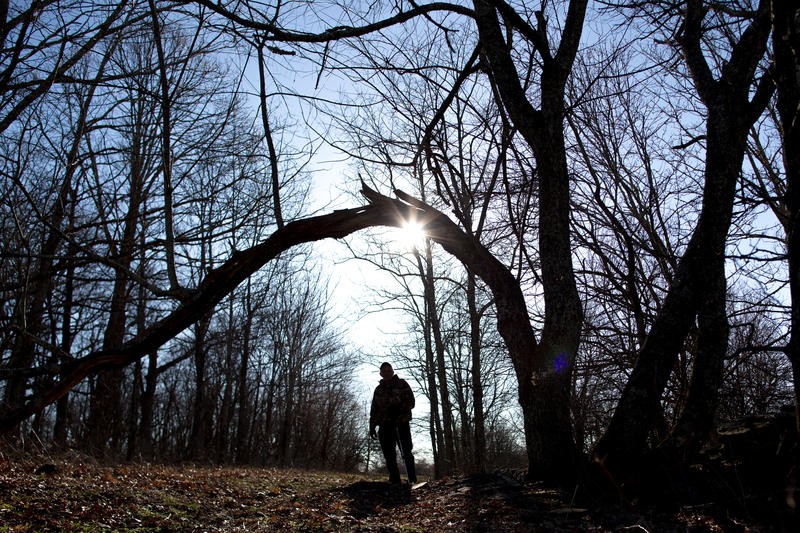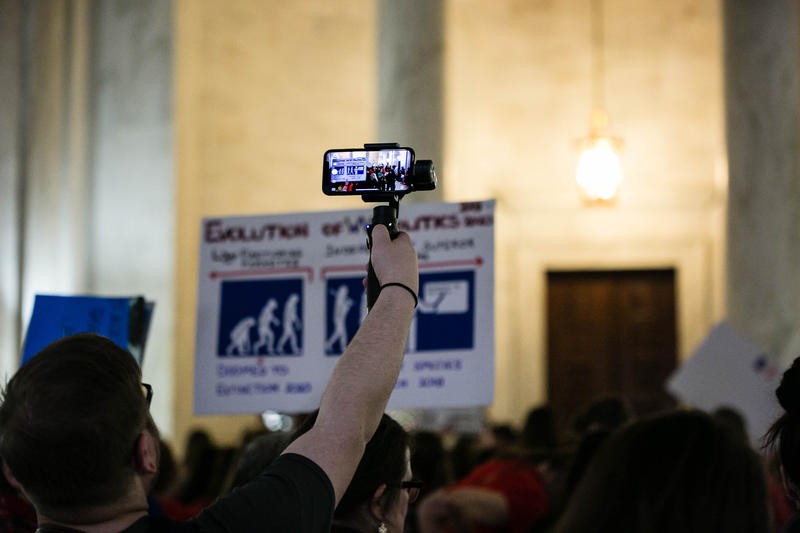In a speech in New Hampshire last week, President Trump advocated executing drug dealers as a way to “solve” the root of American drug addiction, including the opioid crisis.
This is consistent with the president’s get-tough language on addiction, which places more value on—and will direct more government resources toward—enforcement rather than treatment.
“If we don’t get tough on the drug dealers, we are wasting our time,” Trump told the Manchester audience. “And that toughness includes the death penalty.”
Trump has asked Congress for $17 billion to fight the opioid crisis, but many believe that figure will not be approved. Congress is thinking of designating more like $6 billion.
Trump’s plan to fight the opioid crisis has already been criticized for taking too long to roll out, for insufficient funding and for short-shrifting treatment options. Now, the death penalty talk is getting pushback, too.
Aside from the belief held by many that the death penalty is state-sponsored murder and not something a civilized nation should be engaging in, employing it in this case is just bad policy, according to experts.
“We can’t execute our way out of this epidemic,” Dr. Andrew Kolodny, co-director of the Opioid Policy Research Collaborative at Brandeis University told CNN. “To be talking about the death penalty sounds to me like a step backwards.”
As Dr. Jonathan Groner, a pediatric surgeon at the Ohio State University College of Medicine who has written extensively about the medical profession and the death penalty, wrote for NBC News: “‘Death penalty for drug dealers’ is a good sound bite, but an expensive and ineffective policy for the most severe epidemic to affect our country in a generation.”
Groner argues that studies show capital punishment is little deterrent for professional drug dealers who come face-to-face with death on a daily basis. As for the public, the cost of incarceration and litigation drives the taxpayers’ cost high. Not to mention the foreign policy implications—many countries will not supply the U.S. with the drugs needed for lethal injection.
Trump said the death penalty should be reserved for the “worst” drug criminals—the most violent of pushers that sell the most drugs and hurt the most people.
But what of the sprawling pharma-medical industry responsible for the spread of narcotic painkillers in the 1990s and 2000s, which are at the root of today’s addiction crisis? President Trump has promised to use the Justice Department to pursue “major litigation” against drug-makers for their role in the opioid crisis. Civil cases are fine; they hurt a company’s bottom line and can be a sort of “corporate death penalty” if they exact a heavy enough toll. But will Trump also urge his DOJ to bring criminal charges against the companies?
There is another leader who believes the death penalty is an effective tool for handling drug dealers: Philippines President Rodrigo Duterte.
Over the course of a shocking 15-month campaign across 2016 and 2017, Duterte oversaw a Filipino police action that killed thousands of suspected drug dealers. More than 3,900 “drug personalities,” as Duterte called them, were killed in extrajudicial targeting by the police. Thousands more were murdered in suspicious circumstances, according to police records.
Duterte taunted, mocked and cursed the widespread international criticism of his state-sanctioned death squads. “When you kill criminals, that is not a crime against humanity. The criminals have no humanity,” he said.
Duterte only recently removed police from the drug war, passing the initiative to the nation’s Drug Enforcement Agency. He sneeringly said he hoped the move would satisfy the “bleeding hearts” who denounced his carnage.
Criticism of Duterte’s bloody campaign was nearly universal but not unanimous. Duterte has at least one fan: Trump. Trumped joked with Duterte at a Manila meeting in November of last year and did not bring up the extrajudicial killings. Earlier in the year, according to a leaked transcript of a phone call between the two leaders, Trump praised Duterte for doing an “unbelievable job on the drug problem.”
Trump loves strongman rulers. He congratulated Vladimir Putin on his re-election. His Justice Department quietly dropped charges against the bodyguards of Turkish President Recep Tayyip Erdogan who on American soil in Washington D.C. last May brutally assaulted protesters outside the Turkish Embassy. After Chinese President Xi Jinping changed the constitution to make himself president for life, Trump joked “maybe we’ll have to give that a shot someday.”
Frank Ahrens, a West Virginia native and WVU graduate, is a public relations executive in Washington D.C. He was a Washington Post journalist for 18 years and is the author of “Seoul Man: A Memoir of Cars, Culture, Crisis, and Unexpected Hilarity Inside a Korean Corporate Titan.” Contact him at www.frankahrens.com.



